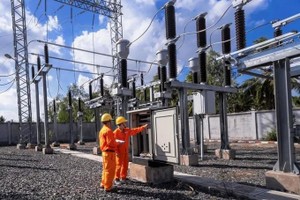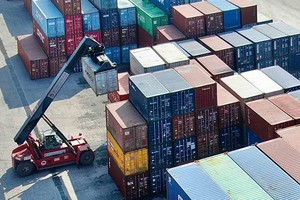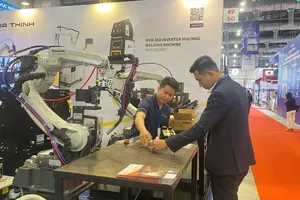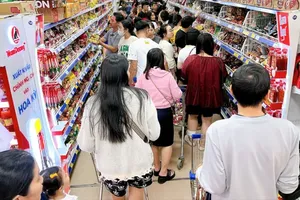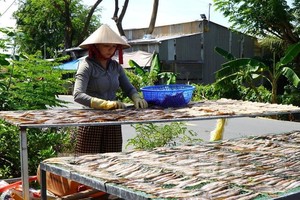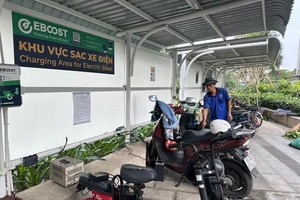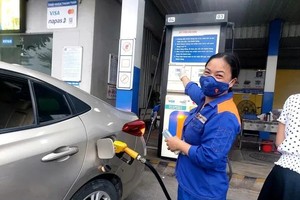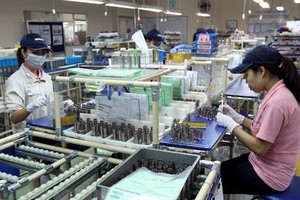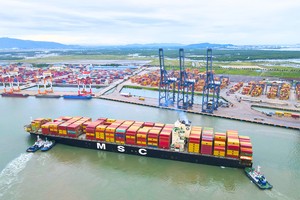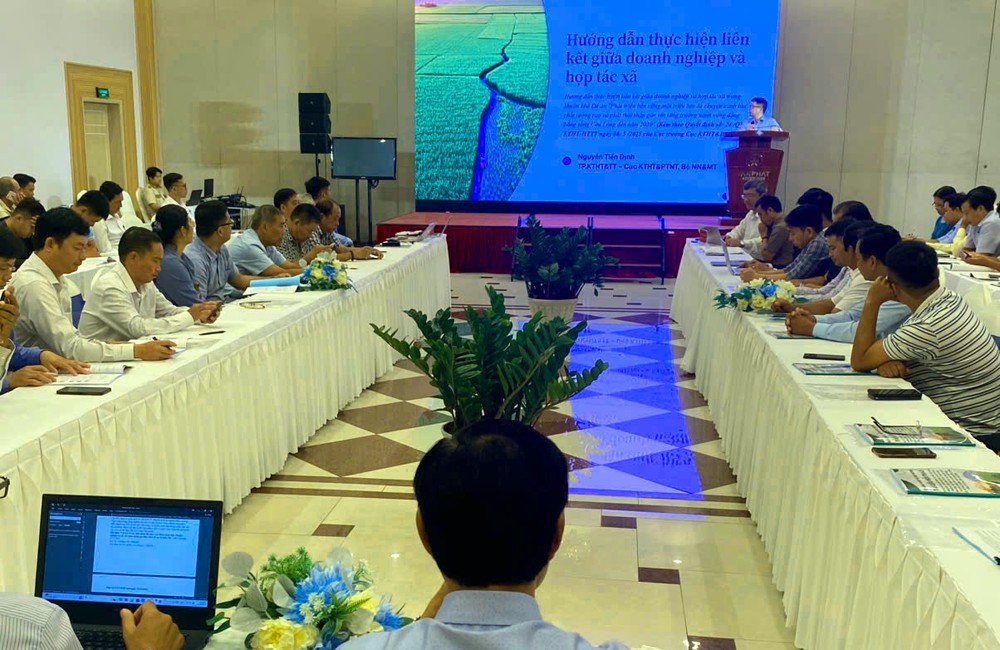
The high-level workshop was held in Can Tho City to explore solutions for enhancing collaboration among farmers, cooperatives, and businesses under the flagship project “Sustainable Development of One Million Hectares of High-Quality, Low-Emission Rice Associated with Green Growth in the Mekong Delta by 2030” on the morning of May 13.
The event was jointly organized by the Department of Cooperative Economy and Rural Development and the School of Public Policy and Rural Development.
At the workshop, Dr. Tran Minh Hai, Vice Rector of the School of Public Policy and Rural Development, presented a summary of key achievements after one year of the project’s implementation. To date, 12 provinces and cities across the Mekong Delta (excluding Ben Tre) have collectively registered over 1 million hectares of rice cultivation under the project. Kien Giang leads with 200,000 hectares, while Vinh Long reports the smallest area with 20,000 hectares.
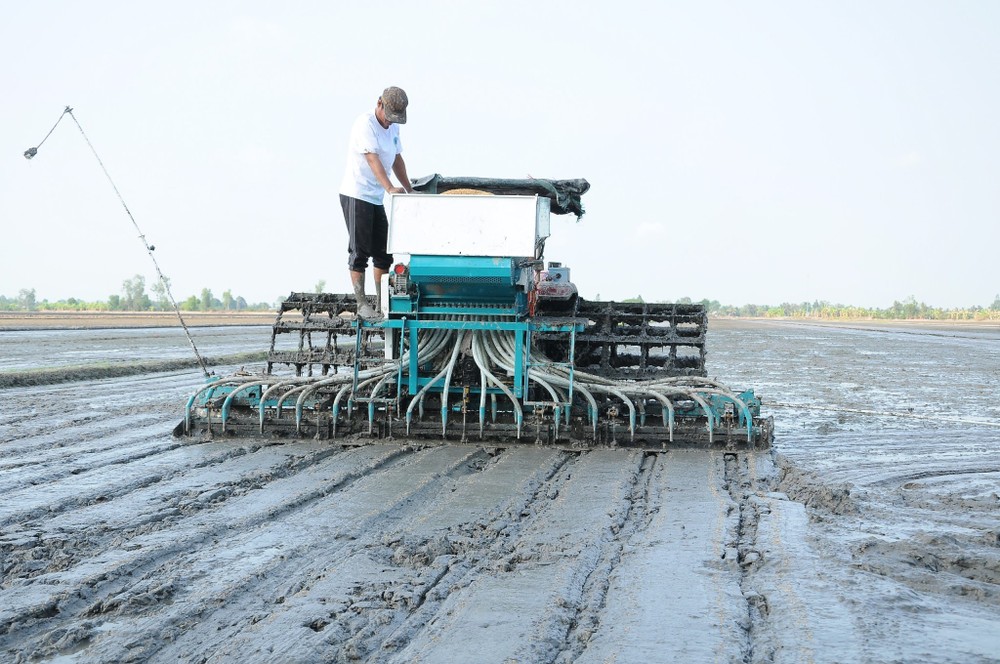
Pilot models initiated at the central level in provinces such as Kien Giang, Soc Trang, Tra Vinh, Dong Thap, and Can Tho have yielded promising results. Input costs—including seeds, fertilizers, pesticides, and irrigation—have decreased, while productivity has risen. Farmers participating in these models have seen income gains ranging from 12–50 percent, equivalent to an additional VND4–7.6 million per hectare compared to traditional farming practices.
However, both agricultural experts and business representatives raised significant concerns regarding existing bottlenecks. A key challenge lies in the fragmented structure of smallholder farms, which constrains the adoption of advanced agricultural technologies and impedes the development of large-scale, consolidated raw material zones. Compounding this issue is the aging demographic of rice farmers, many of whom are reluctant to embrace new cultivation practices, making it difficult to meet the standards expected by enterprise-led partnerships.
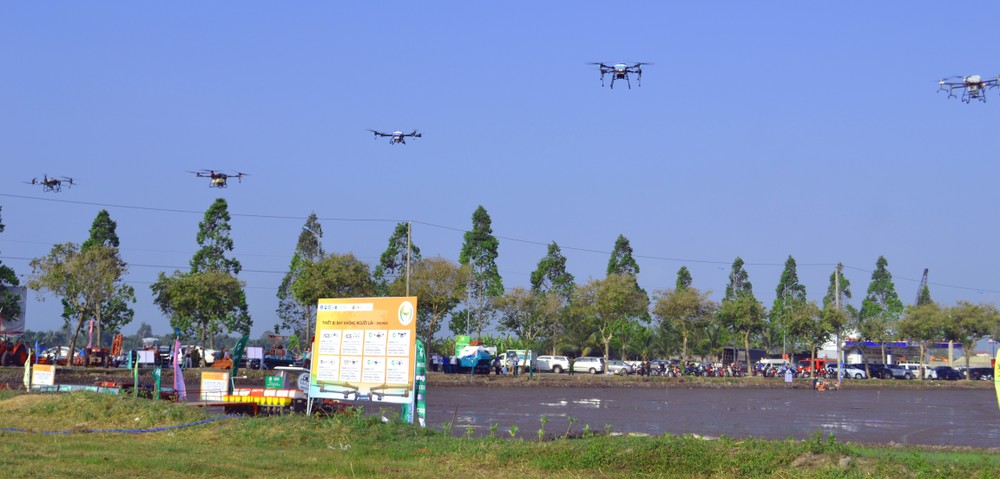
Tran Van Lo Ba, representing the Phu Thanh Agricultural Cooperative in Phu Tan District, An Giang Province, noted that all participating farmers have received technical training and are applying sustainable rice cultivation practices. Yet, partnerships with buyers remain limited in scope and diversity, and the overall linked farming area remains modest compared to local production potential.
Dr. Tran Minh Hai emphasized that Kien Giang is currently setting the benchmark in the project’s implementation. Several cultivation areas in Giang Thanh District exceed 300 hectares and grow uniform rice varieties, creating favorable conditions for enterprises to enter into guaranteed purchasing agreements. He encouraged other provinces to emulate this model in scaling up implementation.
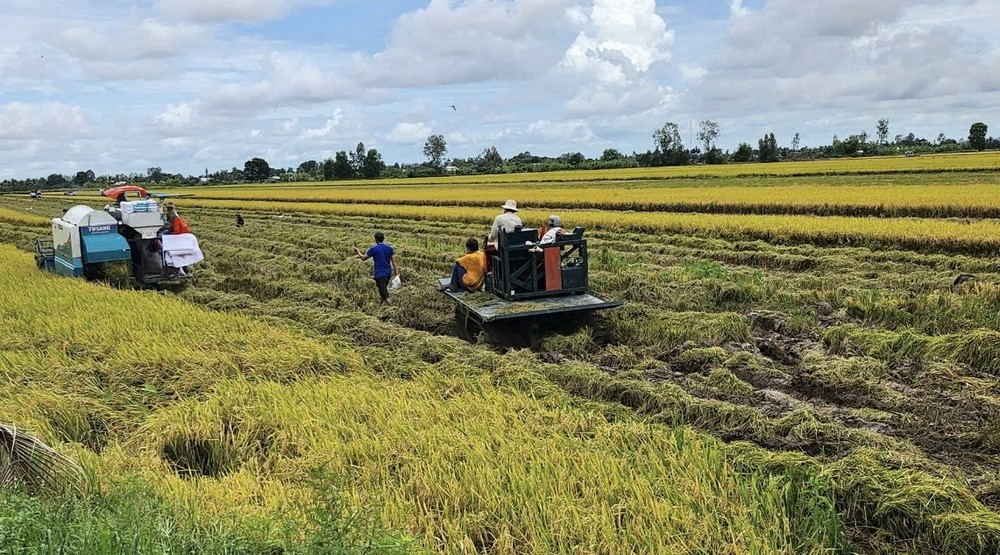
To accelerate progress, Dr. Tran Minh Hai stressed the need for each locality to publicly designate specific communes where the participation in the project will take place—thereby enabling targeted enterprise engagement. He also underscored the importance of strengthening the role of agricultural cooperatives as central “aggregators” representing farmers in business linkages. This shift would allow cooperatives to move beyond passive intermediaries toward becoming active facilitators of collective input procurement and output marketing, reducing reliance on informal brokers and middlemen.










